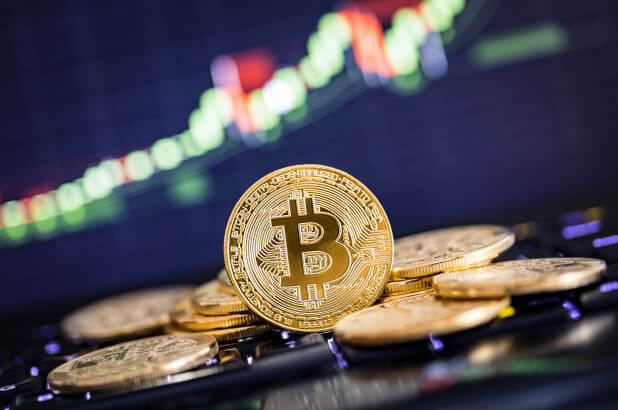Bitcoin has been hammered hard over these past few days, though it has managed to remain a small bit of momentum during the last 48 hours. The world’s number one cryptocurrency by market cap has managed to retain a position at around $5,300.
Bitcoin Gets a Surge Thanks to the White House
This is likely thanks to a new economic stimulus package that President Donald Trump is looking to infuse. The package could be worth as much as $1 trillion and involves deferred tax payments for both individuals and corporations alike, as well as checks of up to $2,000 for individuals that made less than a certain amount.
This ultimately caused an upsurge in both crypto and stocks, though at the time of writing, the Dow has taken another massive stumble, and crypto – while stable for the time being – is less than where it originally stood. Just a day ago, following the news of the stimulus package, bitcoin rose as high as $5,700, only to clearly lose some of this value.
One of the big problems surrounding crypto as of late is that it’s now a correlated asset. It no longer seems to work all by itself, but rather appears to be tied to other tradeable products such as precious metals, bonds and stock shares. Bitcoin critic Peter Schiff recently commented on the situation:
Bitcoin is no longer a non-correlated asset. It’s positively correlated to risk assets like equities and negatively correlated to safe-haven assets like gold. When risk assets go down, bitcoin goes down more, but when risk assets go up, bitcoin goes up less. No value in that!
It’s hard to simply dismiss Schiff’s words considering gold hasn’t been doing too well as of late either. Once considered a long-term and natural “safe haven,” gold has fallen below $1,400 for the first time in months. It has failed to sustain any sort of bullish momentum during this past month and is as vulnerable to the recent negative market conditions as bitcoin and the stock market.
So according to Schiff’s comments, since gold is going down, bitcoin is likely to follow suit. Many are wondering if general markets will do the same and follow the same patterns as their counterparts as recently, the Philippines stock exchange (PST) has decided to close its doors over the next 24 hours as a means of combatting further economic effects of the coronavirus.
Will Other Markets Close?
Mati Greenspan, in his latest Quantum Economics newsletter, explains that this move is not necessary amongst larger markets. He says the move is “unspeakable” and “rash,” and is worried that other markets will also cease operations and follow in the exchange’s footsteps.
At press time, other markets remain open and according to Greenspan, the New York Stock Exchange (NYSE) is managing assets well, so perhaps we can avoid further issues.



